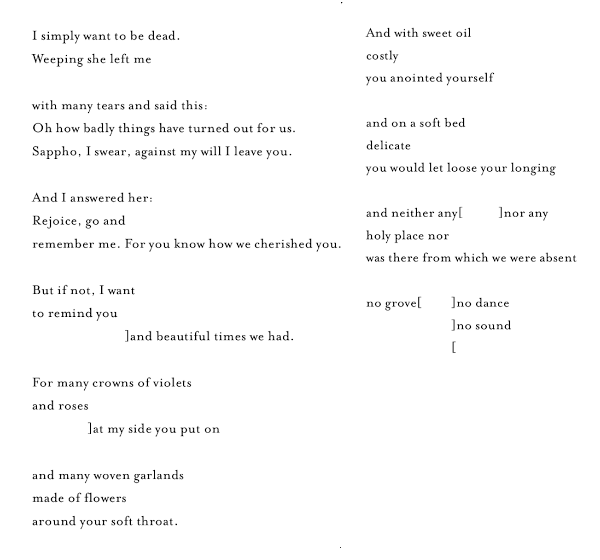



Yet sedulous hypocrites are to be found to-day who will wilfully mistranslate and misconstrue in order to envelope the manners of antiquity in a retrospective and most absurd respectability. Any other explanation destroys at once their art and reality. That her poems were chiefly love-poems, and love-poems written to women, is clear even from the mutilated fragments which remain. She is there revealed to us as a woman of ardent nature, noble, delicate-minded, and fond of pleasure. An inscription in the Parian Chronicle says: “When Aristokles reigned over the Athenians Sappho fled from Mitylene and sailed to Sicily.”īut it is through her own poems that we see most clearly into the beauty and tragedy of her life. At some period of her life she was exiled from Lesbos. Her name in her own language is “Psappha.” She was a contemporary of Alkaios and Stesichorus. SAPPHO was born in the island of Lesbos about 612 B.C. įrom The Poems of Anyte of Tegea, Translated by Richard Aldington Poems and Fragments of Sappho, translated by Edward Storer from The Poet’s Translation Series, Second Set, No.


 0 kommentar(er)
0 kommentar(er)
